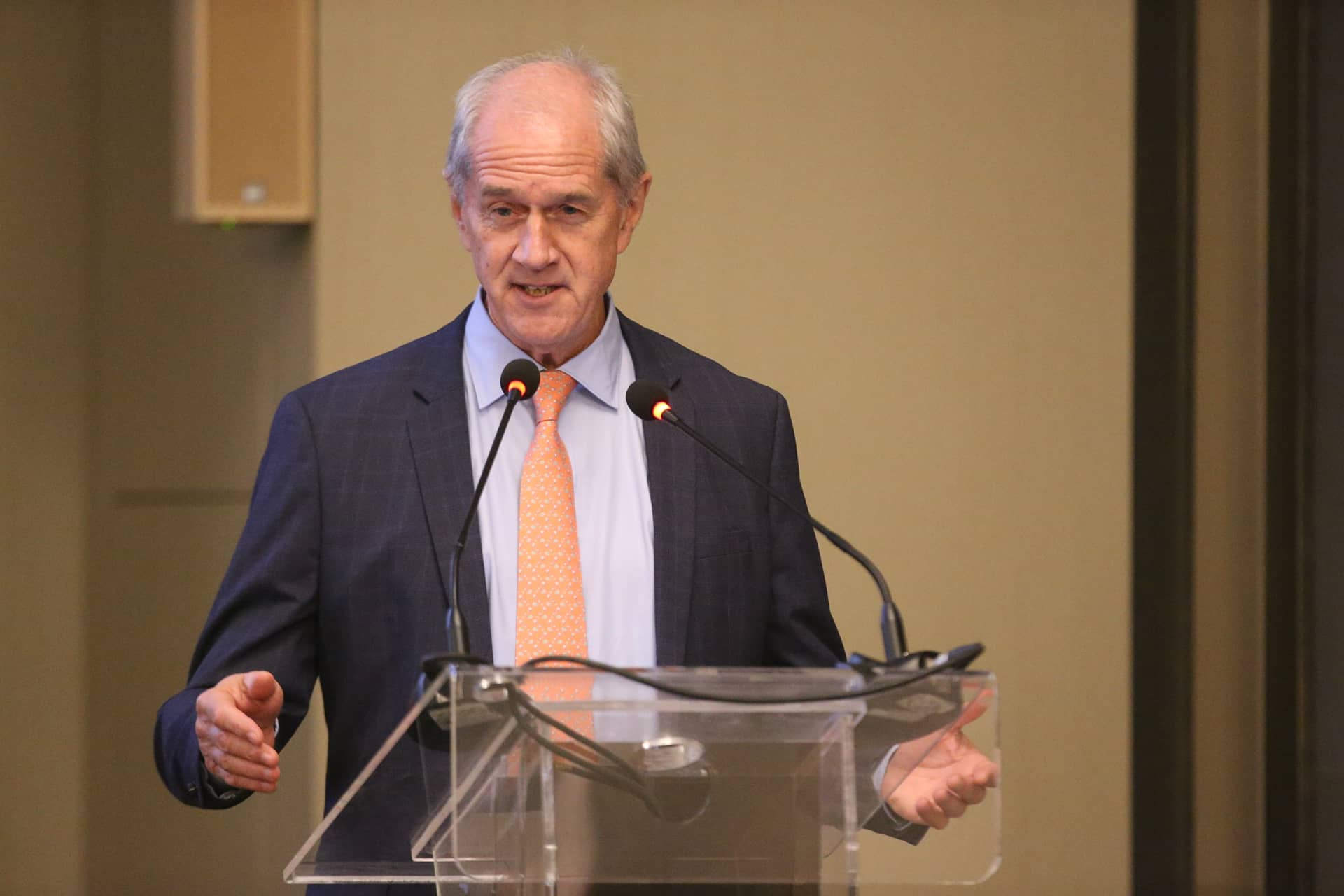[vc_row][vc_column][penci_container el_width=”penci-container” ctsidebar_mb=”con_sb2_sb1″][penci_column width=”11″][penci_fancy_heading title=”South African crisis solved because the process was owned by locals not the international community” block_id=”penci_fancy_heading-1576511272904″][/penci_fancy_heading][vc_video link=”https://www.youtube.com/watch?v=5DKv1z_22h8″][vc_column_text]Having a leader of Nelson Mandela’s stature, a leader of honesty, empathy, generosity and selflessness, who sought no revenge despite being locked up in prison for 27 years was a big factor in the conflict resolution of South Africa, said Roelf Meyer.

Roelf Meyer, director in transformation initiative and former minister of constitutional affairs in South Africa
Meyer, who was the South African government’s chief negotiator in the negotiations that ended apartheid, said that at the end of the ’80s nobody had any hope of any solution “but we succeeded in getting out of it peacefully and the first thing that helped us was the political will our leaders had.”
“FW De Klerk and Nelson Mandela took responsibility for sitting round the table and resolving the situation. South Africa was regarded as a pariah state and maybe that was in our favour. We came together as a nation because of the international stand against South Africa because of apartheid,” he told delegates at the Cyprus Mail symposium The Syrian Crisis and its Consequences in our Region.
The two sides dialogued about what was the best outcome, but most importantly they sat at the negotiating table without conditions, Meyer said, adding that this rarely happens. In most negotiations people set conditions before they agree to talk. “De Klerk set no conditions for Mandela to be released from prison and Mandela set no conditions to come out of prison although he could have said, ‘I want power first.”
The process had to address the constitutional change that had to happen. “For 300 years the paradigm was based on superiority versus inferiority,” said Meyer. “We succeeded in eradicating that paradigm and replaced it with a new paradigm – respect for individual life on an equal basis for all. We learnt to tolerate each other and tolerance was key to overcoming differences that existed between black and black, black and white, Christian and Muslim and other faiths… there was protection for 11 official languages, six colours in our flag and four languages in our national anthem.”
Three factors were vital to the success of the talks, Meyer said. “First, we followed an inclusive approach – we brought everybody to the same room to negotiate. We had inclusivity at the heard of the talks and were led in that regard by Mandela.
“Second, we learnt to have trust between us. When we first sat down we were further away than the Greek and Turks on this island, much further away, but we learned about trust. We looked each other in the eye and learned how to put ourself in the shoes of the person on the other side.”
The third factor was very important with regard to the Syrian issue, said Meyer. Despite having the whole world supporting the peace process in South Africa, “we did not allow the international community to take over the peace process on our behalf.
“It was us that took the responsibility to find the answers for the conflict that belonged to us.”[/vc_column_text][/penci_column][/penci_container][/vc_column][/vc_row]
